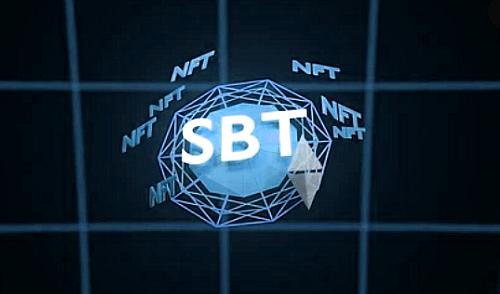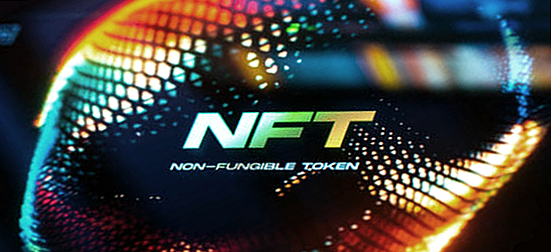Accredited InvestorsAltcoinAnatoli UnitskyAnti-Money Laundering (AML) In CryptoAPIArbitrageArtCoin TokenArticle DirectoryASICAuction Terminology GlossaryBasics of Stock Market InvestingBear MarketBest Crypto Payment Provider In the WorldBitcoinBlockchainBlockchain ConfirmationBlockchain Consensus MechanismBlockchain ForkBlockchain GlossaryBored Ape Yacht ClubBuild a Business That OutperformsBull MarketBuying SkyWay SharesByzantine Fault Tolerance (BFT) ExplainedCasascius CoinCentral Bank Digital Currency (CBDC)Centralized Crypto ExchangeCoinCoinsetCold WalletCollateralCommodity Futures Trading Commission (CFTC)Cross-Chain TechnologyCRUCrypto ExchangeCrypto GlossaryCrypto JokesCrypto Terms to KnowCrypto TickerCryptocurrencyCryptographyCryptojackingCryptounit BlockchainCryptounit GlossaryCryptounit ProgramdApp (Decentralized Application)Dead CoinDecentralized Exchange (DEX)Decentralized Finance (DeFi)Difference Between Bitcoin and EthereumDifferent Ways of Investing MoneyDigital CurrencyDistributed LedgerDo Your Own Research (DYOR)Dollar Cost Averaging (DCA)Dow Jones Industrial Average (DJIA)EncryptionERC-20ERC-721EthereumEvoScentFear Of Missing Out (FOMO)Fear, Uncertainty and Doubt (FUD)Fiat MoneyFNT Fintech CompanyGenesis BlockGlobal Unit PayGlossary of Banking TermsGlossary of Business TermsGlossary of Financial TermsHalvingHODLHot WalletHow Do I Start InvestingHow Rich is Satoshi Nakamoto?How to Create a BlockchainHow to Find Private InvestorsHow to Get Into FintechHow to Program Smart ContractsI Am Thrilled to Be a Part of This Global ProjectInitial Coin Offering (ICO)Initial Public Offering (IPO)Initial Token Offering (ITO)Innovation Basalt TechnologyInnovative Transportation TechnologiesInternational Bank Account Number (IBAN)Investing in Gold Mining StocksInvesting in Gold MiningJagerJoy of Missing Out (JOMO)Know Your Customer (KYC)LedgerLiquidity in CryptocurrencyMaker and Taker Fees in Crypto TradingMarket Capitalization (Market Cap)Meme CoinMetal Credit CardMetaMaskMillenials Now Have Access to Generational WealthMy Best Investment EverNew Digital EvolutionNFT GlossaryOff-Chain TransactionsOn-Chain TransactionsOpen Edition NFTPeer-to-Peer (P2P)Personal Loan GlossaryProbably the Best STO on the MarketProof of Stake (PoS)Real Estate Glossary of TermsReal Estate Investing GlossaryRebase TokenSecurities and Exchange Commission (SEC)Security Token ExchangesSecurity Token Offering (STO)Soulbound Decentralized Identities for Security TokensSoulbound ID Launch by Stobox Proves a SuccessSoulbound TokensStoboxStock Market GlossaryTestimonialsTether Platform and Token (USDT)UnitEx ExchangeUnitsky String TechnologiesUNTBUSDUValidatorWe Started Investing When We Were 25What are Blue Chip NFT?What are Blue Chip Stocks?What are Crypto Assets?What are Crypto Smart Contracts?What are CryptoPunks NFT?What are Digital Assets?What are Digital Collectibles?What are Gas Fees?What are Gas Wars?What are Hashmasks?What are Non Fungible Tokens?What are Non-Sufficient Funds (NSF)?What are Soulbound Tokens (SBT)?What are Stablecoins in Crypto?What are Transactions Per Second (TPS)?What are Utility NFTs?What are Utility Tokens?What Does Burning Crypto Mean?What Does Diamond Hands Mean?What Does Paper Hands Mean?What Does To The Moon Mean?What Does WAGMI Mean?What Happened to Satoshi Nakamoto?What is a 51% Attack?What is a Baby Boomer?What is a Backlink?What is a Banner?What is a Barcode?What is a Bid-Ask Spread in Crypto?What is a Block in Blockchain?What is a Block Reward?What is a Blockchain Address?What is a Blockchain Node?What is a Blockchain Oracle?What is a Blog?What is a Bond?What is a Bot?What is a Broker?What is a Business Accelerator?What is a Cash Cow?What is a Commercial Bank?What is a Commodity?What is a Con?What is a Credit?What is a Credit Limit?What is a Credit Rating?What is a Crypto Airdrop?What is a Crypto Bridge?What is a Crypto Scam?What is a Crypto Token?What is a Crypto Wallet?What is a Crypto Whale?What is a Crypto Winter?What is a Cryptocurrency Public Ledger?What is a Cryptocurrency Roadmap?What is a DAO?What is a Dark Pool?What is a Day Trader?What is a Dead Cat Bounce?What is a Default?What is a Derivative?What is a Digital Credit Card?What is a Fiscal Quarter?What is a Fungible Token?What is a Governance Token?What is a Grace Period?What is a Hard Fork?What is a Hot Wallet?What is a Hybrid Blockchain?What is a Hybrid PoW/PoS?What is a Joint Account?What is a Market Cap?What is a Merkle Tree in Blockchain?What is a Mining Farm?What is a Nonce? What is a PFP NFT?What is a POS System?What is a Prepaid Card?What is a Private Blockchain?What is a Private Key?What is a Public Blockchain?What is a Public Key?What is a Reserve Currency?What is a Ring Signature?What is a Routing Number?What is a Rug Pull in Crypto?What is a Safe Deposit Box?What is a Satoshi?What is a Security Token?What is a Seed Phrase?What is a Shitcoin?What is a Sidechain?What is a Soft Fork?What is a Spot Market?What is a State Bank?What is a SWIFT Code?What is a Tax Identification Number (TIN)?What is a Time Deposit?What is a Transaction Account?What is a Variable Interest Rate?What is a Virtual Assistant (VA)?What is a Virtual Card?What is a Virtual Currency?What is a Visa Card?What is a Whitelist in Crypto?What is a Whitepaper?What is Accounts Payable (AP)?What is AMA in Crypto?What is Amortization?What is an Accrual?What is an ACH Transfer?What is an Actuary?What is an Addendum?What is an Algorithm?What is an Angel Investor?What is an Annuity?What is an Asset?What is an ATM?What is an Atomic Swap?What is an Audit?What is an Avatar?What is an EIN?What is an Embargo?What is an Entrepreneur?What is an IDO (Initial Dex Offering)?What is an Interest Rate?What is an Internet cookie?What is an Investment Bank?What is an NFT Drop?What is an NFT Floor Price?What is an Ommer Block?What is an Orphan Block?What is an Outstanding Check?What is an Overdraft?What is Artificial Intelligence (AI)?What is B2B (Business-to-Business)?What is B2G (Business-to-Government)?What is Bartering?What is Bitcoin Dominance?What is Bitcoin Pizza Day?What is Blockchain Immutability?What is Blockchain Used For?What is BRICS?What is Business-to-Consumer (B2C)?What is C2C (Customer to Customer)?What is Capitalism?What is Catfishing?What is CFD Trading?What is Check Kiting?What is Cloud Mining?What is Communism?What is Content Marketing?What is Decentralization in Blockchain?What is DeFi in Crypto?What is Delisting?What is Depreciation?What is Digital Marketing?What is Diversification?What is Double Spending?What is Dumb Money?What is Dumping?What is Earnings Per Share (EPS)?What is Economics?What is Email Marketing?What is Equity?What is Etherscan?What is Fintech?What is Foreign currency?What is Forex?What is Fundamental Analysis (FA)?What is GameFi?What is Generative Art NFT?What is Gwei?What is Hard Currency?What is Hash Rate?What is Hashing in Blockchain?What is Inflation?What is Initial Game Offering (IGO)?What is Interest?What is Interest Income?What is Mainnet?What is Mastercard?What is Metaverse in Crypto?What is Mining in Cryptocurrency?What is Minting NFT?What is Mobile Banking?What is Money Laundering?What is NFT Alpha?What is NFT Metadata?What is NFT Rarity?What is NGMI Meaning?What is Nominal Interest Rate?What is Online Banking?What is Open-End Credit?What is OpenSea NFT Marketplace?What is Personal Identification Number (PIN)?What is Play-to-Earn?What is Polygon?What is Proof of Authority (PoA)?What is Proof of Work (PoW)?What is Public Key Cryptography?What is Pump and Dump?What is Quantum Computing?What is Refinancing?What is Retail Banking?What is Ripple?What is Sharding?What is Slippage in Crypto?What is Smart Money?What is Solvency?What is Soulbound ID?What is SSL?What is Staking in Cryptocurrency?What is Technical Analysis (TA)?What is Testnet?What is the Ask Price?What is the Better Business Bureau (BBB)?What is the Bid Price?What is the Dark Web?What is the InterPlanetary File System (IPFS)?What is the Gold Standard?What is the Lightning Network?What is the Prime Rate?What is the Sandbox?What is the Secondary Market?What is the World Bank?What is Tier 1 Capital?What is Tokenomics?What is TRC-20?What is Universal Banking?What is Unspent Transaction Output (UTXO)?What is Usury?What is Volatility in Crypto?What is Wash Trading?What is Web3?What is Whisper?What is XRP?What is Zero-Knowledge Proof (ZKP)?Who is Beeple?Who is Satoshi Nakamoto?Who is Vitalik Buterin?Why Tokenization is a Safe HavenWhy You Should Try Your Hand at Trading
What Are Soulbound Tokens (SBT)?
- Home
- Cryptounit Glossary
- What Are Soulbound Tokens (SBT)?
In May 2022, Ethereum co-founder Vitalik Buterin, lawyer Puja Ohlhaver, and economist and social technologist E. Glen Weyl proposed the concept of Soulbound Tokens (SBTs) in their whitepaper "Decentralized Society: Finding Web3’s Soul."
 Stobox - a leading provider of Soulbound Tokens solutions
Stobox - a leading provider of Soulbound Tokens solutionsThe whitepaper explains how SBTs can be used as credentials in a fully decentralized society (DeSoc) governed by its users. The paper goes into detail on how SBTs would function in everyday life, and how they would be used to establish trust and governance in a decentralized society.
What Are Soulbound Tokens (SBT)?
A Soulbound Token (SBT) is a type of non-fungible token (NFT) that is unique and permanent, meaning it cannot be traded or transferred. Like regular NFTs, SBTs live on the blockchain and have their own identification code and metadata. The concept of SBTs is derived from the game World of Warcraft (WoW), where "soulbound" is a property of an item that prevents it from being traded or given away to other players.
SBTs can serve as a way to verify personal achievements and information, such as completing a degree, earning a professional certification, or winning an award. They can also be tied to a wide range of other traits, features, and personal information, such as name, birthday, political affiliations, charitable giving, criminal record, medical history, nationality, religious upbringing, and military history. The possibilities are endless, and they all can be stored in your private blockchain wallet.
How Do Soulbound Tokens Work?
Soulbound Tokens (SBTs) can be used as a way to verify personal credentials and affiliations. Unlike other forms of verification, SBTs are permanent and cannot be transferred or sold, making it difficult for individuals to claim false credentials.
Additionally, SBTs have the potential to solve some of the issues plaguing decentralized finance, such as scams and thefts. The inability to transfer or sell SBTs can help ensure the authenticity of NFTs and the trustworthiness of NFT artists and projects.
However, there may be cases where an individual may not want an SBT they have received. The concept of SBTs includes the ability for individuals to hide or destroy unwanted SBTs, but the specifics of how this would work are not yet clear.
Some Examples of How SBTs Can Be Used
- Managing medical records through the use of SBTs
- Storing digital identification cards or membership credentials on the blockchain
- Certifying achievements, such as job history or educational degrees, through the use of SBTs
- Verifying attendance at events, similar to a Proof of Attendance Protocol
- Allowing individuals to build verifiable digital reputations based on past actions, which could aid in tracking DeFi borrowing history and loan approvals
- Introducing reputation-based voting for decentralized autonomous organization (DAO) governance models to mitigate Sybil attacks
- Using social recovery methods to gain access to lost private keys through SBTs.
Limitations of SoulBound Tokens
Buterin and his co-authors have proposed the use of SoulBound Tokens (SBTs) for various purposes such as managing medical records, storing digital ID cards or memberships, certifying achievements, and verifying attendance to events. However, there have been concerns raised about the potential loss of keys and the security of the sensitive information stored in SBTs.
To address this, the team has included a recovery mechanism for lost keys and the option for users to choose whether their SBTs are public or private. Additionally, there are also concerns about the potential negative consequences of using SBTs, such as the creation of a "social credit system" similar to the one being developed in China, which raises ethical questions about privacy and how these tokens could be used.
The Future of Soulbound Tokens
SoulBound Tokens are a significant advancement in the goal of blockchain technology, which is to give regular people control over their data and how it's used. With SBTs, individuals have the power to manage their data and determine who has access to it, which is a significant departure from the centralized model of data storage currently in place. This represents a significant step towards true decentralization in the world of blockchain. It is interesting to consider where this technology will take us in the future.
SBTs have the potential to create a decentralized society where personal relationships and social interactions play a crucial role in building one's Web3 identity. They can also establish credibility and reputation, addressing the trust issue in the Web3 community.
These tokens can't be sold or transferred, which would make it difficult for individuals to cheat the system by purchasing prestige or exaggerating their accomplishments. Additionally, SBTs could also help in reducing identity thefts and scams on the Web3 ecosystem.
Related Articles

Vitalik Buterin
Vitalik Buterin is a Russian-Canadian programmer and Ethereum co-founder. He is widely recognized as one of the most influential figures in the cryptocurrency and blockchain industry.

Soulbound Tokens
Soulbound Tokens are digital identification tokens that reflect a person's or entity's attributes, features, and achievements. They are issued by "Souls," which are blockchain accounts or wallets, and they are non-transferable.

Soulbound Decentralized Identities for Security Tokens
The Soulbound ID project's concept is to link personal data to a decentralized blockchain wallet in order to ensure regulation and compliance processes in the DeFi market. This is especially true in the case

What are Non Fungible Tokens?
Consider purchasing an asset and receiving a digital token proving your ownership. Wouldn't that be great? With Non Fungible Tokens you can...

Decentralized Finance (DeFi)
Decentralized Finance, DeFi for short, is a new means of providing financial services to the public, generally without the need of a middleman...
- Home
- Cryptounit Glossary
- What Are Soulbound Tokens (SBT)?